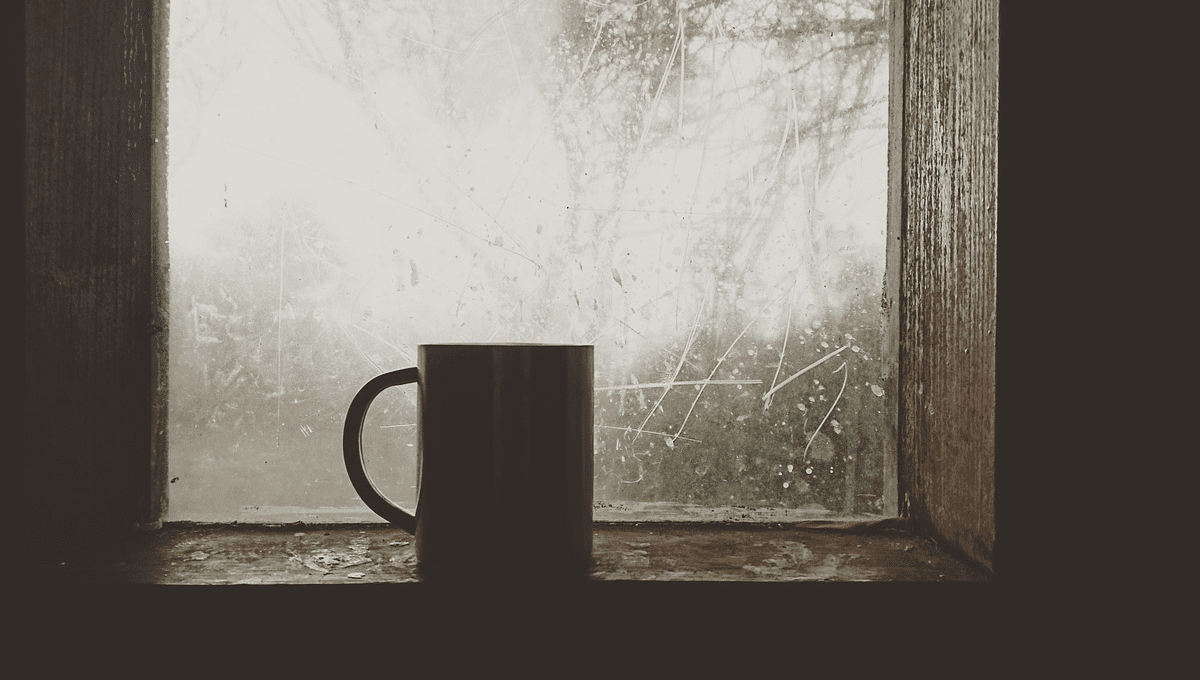“Ashia”: I see your struggle, but have courage, this struggle does not have the last word.
My morning is beginning, as all mornings do, with the preparation of breakfast. Most cooking is done outdoors here in Cameroon, so although we are one of the few families with an indoor kitchen, it lacks some things that, if I had planned it, I would have included. The most necessary is light. It has one very small window and a lightbulb that hangs from the corner of the narrow room. Often the electricity is out and even with it on, I prefer to have the back door open to flood the room with fresh air and sunlight.

This tiny room has become one of my favorite places, which is good considering how much time I spend here. I think it is because of the back door, though, that it has won a place in my heart. As I cook, I can look out over our communal yard. Often our children play here with the children from the quarter below. From this place I can see our neighbors’ outdoor kitchen. The space between my stove and their fire is not far. We share greetings and laughter daily. In the evenings, dinner prep and dish cleanup is done with the beauty of the sunset through the banana and eucalyptus trees with the city lying in the valley below.
Life here has been challenging. We came to live in solidarity, and even with the luxury of a stove, we have met some success in this desire. Although “success” is not a term that many would attach to our experience. We now know what it is to go without water and electricity for days on end. We have experienced illness, malaria and infection, without the “Urgent Care” that I took for granted at home. We know the trauma of threatened violence, and the grief of the fetal loss of our miscarried twins. We have suffered and my heart has been broken. I had wanted to bring the “Joy of the Gospel,” yet I know I am more closely related to the wounded Christ, than I am to Christ the healer, in this moment. Christ’s passion has taken on new meaning.
Some of the suffering has been excruciating, and yet, in this suffering, we are not alone. The crosses, although heavy for us, are minuscule in comparison to what our neighbors have carried. Although we came as missionaries, more often than not, we are on the receiving end of the Good News. And yet, Jesus promised that this is where we would meet Him, with the “least of these.” Which leaves me wondering, who are the “least of these,” me or them?
This morning is ordinary in my doings, but it is extraordinary in its revelation. As I am preparing my family’s breakfast, the song of my neighbor meets my ears. It occurs to me as I listen to her voice lifted in song that everyone sings here. Everyone dances. The statement “I can’t sing, I can’t dance” so commonly heard at home, is never uttered. If you can give voice, you sing, if you can move, you dance. I hear the Good News. We never talk of Christ’s passion, without his resurrection. My neighbors know the Truth of this, they live it. The courage of their song and dance hits me. Their faith is a lived one.
In the beginning, every time we met some struggle, we were offered this word “ashia.”
We had been told that it meant “sorry.” It wasn’t long before I came to find irritation with this word. One day I expressed my frustration to my husband Ryan over the inadequacy of this expression. I was surprised by his response, “I don’t think it means ‘sorry.’” He explained that although it was used for great suffering, our neighbors often offered it to each other during work, and work is a blessing. We sat a Cameroonian friend down to get a clearer definition. She explained that although it offers consolation, it also offers courage. “I see your struggle, but have courage, this struggle does not have the last word.” I am told that the “Blessed be” in the beatitudes was put there because there is no English word for the word that Jesus used “ash rae.” It was explained to me that “Ash rae” means “I see, I witness your struggle, but have courage this struggle does not have the last word.”
Ashia, Ash rae, those who mourn, they will be comforted.
Jesus’ words from the cross “My God, My God why have you forsaken me” Psalm 22, which is immediately followed by Psalm 23 “The Lord is my shepherd, there is nothing I lack.”
There is never passion, without resurrection. This is the courage to dance and sing.
Maura wrote this for Holy Week, on the Alumni blog of the Colorado Vincentian Volunteers. It needs to be lived, and if lived, every week will be Holy.







0 Comments